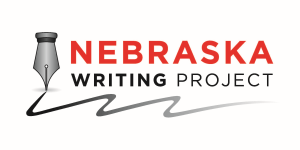Writing in the Classroom
In accordance with the National Writing Project and research about writing instruction and best practices, the Nebraska Writing Project Advisory Board is committed to the idea that writing is essential to learning, communication, and citizenship. Writing helps convey ideas, solve problems, and understand the changing world. Writing is a bridge to connect the past, present, and the future. Therefore, writing instruction is vital at every level of education and across content areas.
Purpose:
The Nebraska Writing Project Advisory Board believes the purpose of classroom writing instruction is to allow students to:
- improve writing in a supportive context with other practicing writers at all levels;
- display sustained and connective thinking on a topic;
- increase awareness of self and the world around each individual;
- understand the connection between text-to-self, text-to-text, text-to-world;
- link students to their community and place; and
- communicate thoughts and ideas effectively.
All of these support teachers in creating and delivering effective writing instruction to their students.
Components:
The Nebraska Writing Project Advisory Board believes components of effective writing instruction include:
- developing meaningful learning through authentic writing activities;
- participating in collaborative writing by both adults and students;
- learning through teacher-designed lessons targeting students’ skill and learning needs;
- teaching purposeful modeling by teachers and students;
- using an effective writing process that has adequate time for development;
- fostering reflection on the writing process and writing growth (written work);
- encouraging responsibility to choose topics and bring some writing to final drafts;
- creating ongoing feedback from both adults and other students that keeps writers writing; and
- facilitating opportunities to share writing with an audience in addition to the teacher as an audience.
Benefits:
The Nebraska Writing Project Advisory Board believes that students and citizens will gain in important ways by engaging in a well-developed and robust writing curriculum. These include:
- engaging in educational reform that moves beyond a testing culture;
- preparing students who are better able to engage in the complexities of 21st century citizenship and society;
- building a direct relationship with place and community;
- facilitating development of thoughtful and dedicated writers; and
- fostering connections between each writer and communities of learners.
The Nebraska Writing Project supports and asserts the following core principles from the National Writing Project regarding writing instruction in the classroom:
Writing can and should be taught, not just assigned, at every grade level. Educators play a critical role in the development of material to meet the skill and learning needs of their students. Professional development programs should provide opportunities for teachers to work together to understand the full spectrum of writing development across grades and across subject areas.
There is no single right approach to teaching writing; however, some practices prove to be more effective than others. A reflective and informed community of practice is in the best position to design and develop comprehensive writing programs.
Collectively, teacher-leaders are our greatest resource for educational reform. Teachers who are well informed and effective in their practice can be successful teachers of other teachers as well as partners in educational research, development, and implementation.
The Nebraska Writing Project Advisory Board supports the following policies and statements related to Writing in the Classroom:
National Council of Teachers of English
International Reading Association and the Association for the Education of Young Children
Resources & Citations:
What to look for in your child's writing classroom - NeWP guide
Mosaic of Thought Eleanor Keene 2007
Rural Voices
Carl Anderson’s How's It Going? A Practical Guide to Conferring with Student Writers 2000 and Assessing Writers 2005.
Fletcher, R. J., & Portalupi, J. (2001). Writing workshop: The essential guide. Portsmouth, NH: Heinemann.
Palmer, Parker J. The courage to teach. San Francisco, CA: John Wiley & Sons Inc., 1994.
Robb, Laura. Teaching Middle School Writers: What Every Teacher Needs to Know, Portsmouth, NH: Heinemann, 2010.
Sobel, D. Place-based Education: Connecting Classroom and Community
Urbanski, Cynthia D. Using the Workshop Approach in the High School English Classroom: Modeling Effective Writing, Reading, and Thinking Strategies for Student Success. Thousand Oaks, CA: Corwin, 2006. Print.
Because Writing Matters: Improving Student Writing in Our Schools
National Writing Project and Carl Nagin (Jossey-Bass, 2003)
